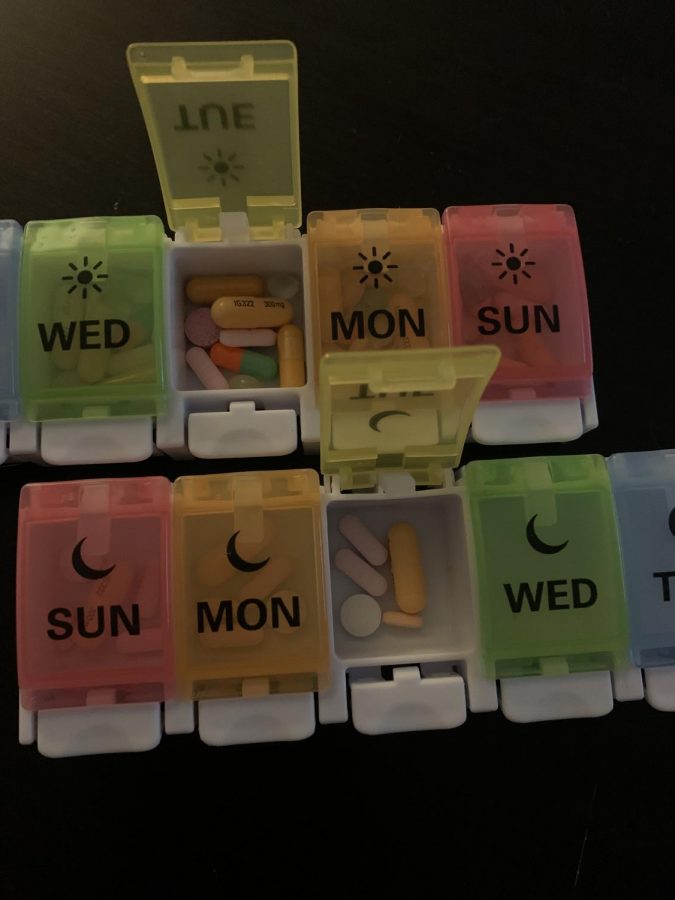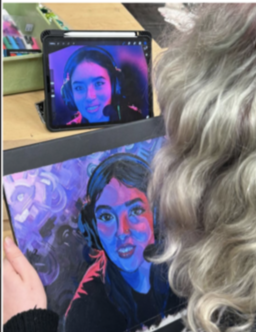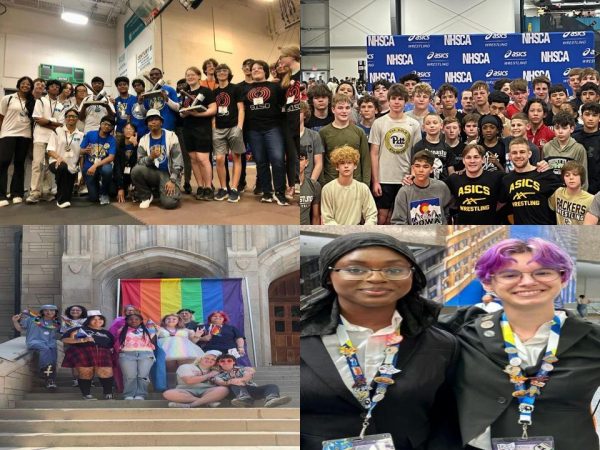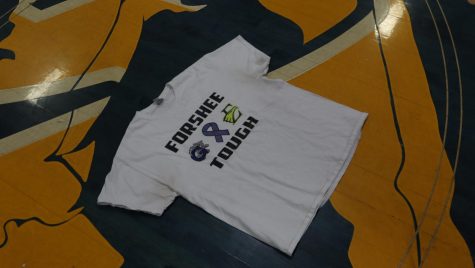Invisible illnesses impact Eagles’ experiences
Photo by Molly Warren
At least three pills a day. Seven days a week. Morning and night. For something people don’t even believe you have.
This is the reality for many people in East Meck’s population. According to the Invisible Disabilities Association, invisible illnesses are “physical, mental or neurological conditions that are not visible from the outside, yet can limit or challenge a person’s movements, senses, or activities.” They can take shape in any person, at any time in their life. Even though they cannot be seen by the general public, they are definitely there, and they tend to be a nuisance. In senior Molly Warren’s case, pain is a constant, specifically in her face.
“I have a condition called trigeminal neuralgia, which is a facial nerve pain disorder,” Warren said. “Basically, it stems from the nerve that feeds one half of my face. There’s a disorder of how the nerve functions, and what that means is I have episodes of shooting, stabbing, lightning-like pain through one half of my face.”
English teacher and soccer coach Janae Aiken can speak on behalf of those who suffer through more well-known, but still misunderstood illnesses.
“When I moved to Charlotte, I went to a gastroenterologist and they diagnosed me with Crohn’s disease,” Aiken said. “With Crohn’s, you can have symptoms like fatigue, tough times digesting certain foods, using the bathroom, or stomach pains, but it looks different for everyone. So if I fast forward to summer of 2019, with Crohn’s, you have to get certain colonoscopies and stuff just so they can take a look at your colon. And that’s when they found colon polyps, which are kind of like stomach ulcers in a sense, but concentrated in your colon. And they were like ‘okay you’re diagnosed with stage one colon cancer.’ So dealing with that has been tough because not only do I have to look at cancer stuff, I have to look at Crohn’s disease stuff too.”
The patients’ origin stories are all different, but each stem from the desire to cure the unexplained pain. However, many of these invisible illnesses have no clear cure, just treatment options such as medications or therapy that can be arranged.
“They don’t really know what the causes are [of trigeminal neuralgia] so your only treatment option really is medication and managing the symptoms,” Warren said, “and that’s where I’m at with it. Also, the medications that I’m on are typically used as anti-seizure medication, so they make me really drowsy and dizzy and give me a lot of brain fog. And so I’m also on medications that counteract those symptoms or side effects.”
Even though these routines are dependent on personal time management, they can control an entire life. Absences rack up as unavoidable doctors visits and mental health days go from being monthly to weekly. Those who can find a way to battle through the seemingly never-ending challenges have discovered tips and tricks to keep things constant.
“I have precautions to where I have my kids sanitize,” Aiken said. “They have to wipe all my stuff down, just because with Crohn’s, your immune system is already compromised, and then now with colon cancer, it’s compromised even more. Schools are the most germ-infested places so technically I’m supposed to have my mask on always. … Then there are some times where I’m just like, I really don’t want to come to school today but I don’t want to be at home either and just sit there. … I feel like for me, I like being here [at East], so I think if I were to take a week off, I’d probably go crazy by Wednesday.”
Invisible illnesses can impact a person’s life just as much as a disability that is seen on the outside. What is agreed on by both Warren and Aiken, however, is that before judging a person on a reason they couldn’t control, make sure to consider a possible alternate explanation for the behavioral difference.
“If someone is telling you that they’re going through this pain or they’re feeling that, really look into the possibilities of what it could be,” Aiken said. “I think words of encouragement are always nice, like ‘hey, you’re doing great today,’ or ‘hey, how are you feeling?’ But just be mindful with the questions that you ask, or how you approach people, and make sure to not be insensitive toward it. If you have questions, just ask.”
Your donation will support the student journalists of East Mecklenburg High School. Your contribution will allow us to purchase equipment and cover our annual website hosting costs.












